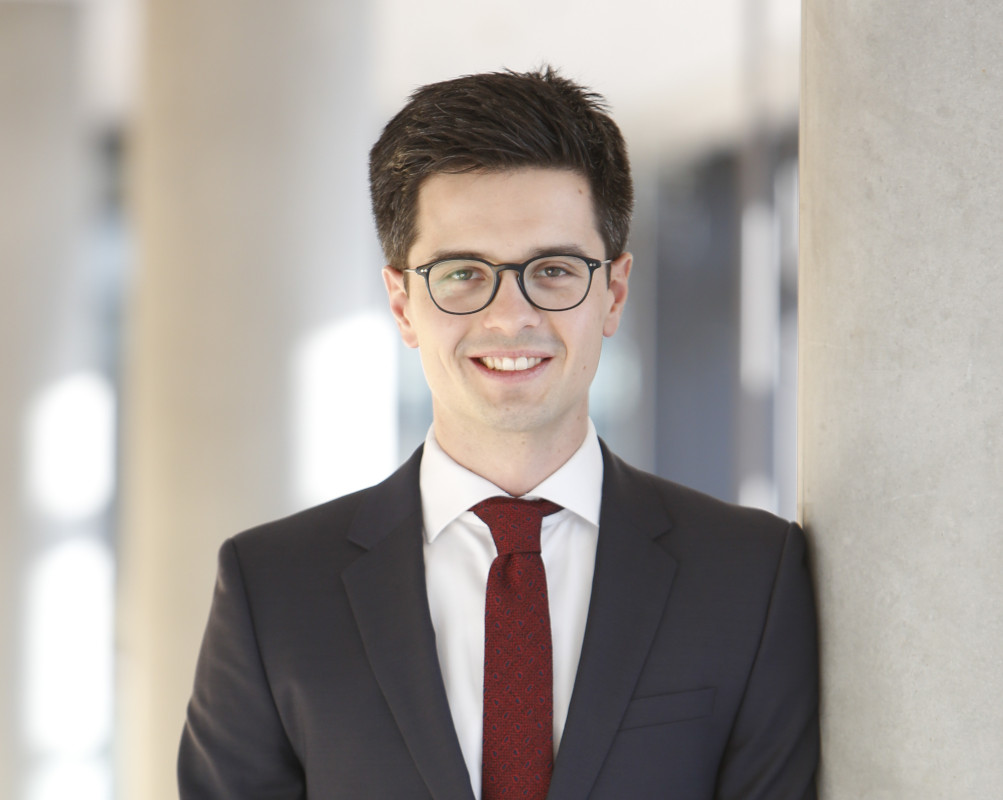Prof. Dr. Markus Nagler

W1-Professur für Arbeitsmarkt- und Innovationsökonomik
Lebenslauf
Markus Nagler studierte Volkswirtschaftslehre an der Ludwig-Maximilians-Universität München (mit Aufenthalt an der Universitat Pompeu Fabra Barcelona, B.Sc. 2012) sowie am University College London (MSc 2013). Nach Abschluss seines Studiums war er wissenschaftlicher Mitarbeiter an der Ludwig-Maximilians-Universität München, wo er 2018 promoviert wurde. Während der Promotion war er als Gastdoktorand an der John F. Kennedy School of Government der Harvard University sowie am Department of Economics des Massachusetts Institute of Technology tätig. Weitere Aufenthalte waren am National Bureau of Economic Research, Cambridge (USA), an der Questrom School of Business der Boston University, sowie am Centre for Economic Performance an der London School of Economics.
Seit November 2019 ist Markus Nagler Tenure-Track Juniorprofessor für Arbeitsmarkt- und Innovationsökonomik an der Universität Erlangen-Nürnberg. Seine Forschung beschäftigt sich mit Fragen aus der der Arbeitsmarkt- und der Innovationsökonomik. Sein Schwerpunkt liegt auf der Beantwortung von Fragestellungen aus diesen Bereichen mit Hilfe mikroökonometrischer Methoden.
Mehr Informationen finden Sie auch auf der Website der Juniorprofessur.
Aktuelle Publikationen
2023
- , , :
Tutoring in (online) higher education: Experimental evidence
In: Economics of Education Review 92 (2023), Art.Nr.: 102350
ISSN: 0272-7757
DOI: 10.1016/j.econedurev.2022.102350 - , , :
High-Pressure, High-Paying Jobs?
In: Review of Economics and Statistics (2023), S. 1-45
ISSN: 0034-6535
DOI: 10.1162/rest_a_01362 - , , :
Fostering the Diffusion of General Purpose Technologies: Evidence from the Licensing of the Transistor Patents*
In: Journal of Industrial Economics (2023)
ISSN: 0022-1821
DOI: 10.1111/joie.12311
2022
- , , :
Can peer mentoring improve online teaching effectiveness? An RCT during the COVID-19 pandemic
In: Labour Economics 78 (2022), Art.Nr.: 102220
ISSN: 0927-5371
DOI: 10.1016/j.labeco.2022.102220
URL: https://www.sciencedirect.com/science/article/pii/S0927537122001075?via=ihub
(Working Paper) - , , :
ICT, collaboration, and innovation: Evidence from BITNET
In: Journal of Public Economics 211 (2022), S. 104678
ISSN: 0047-2727
DOI: 10.1016/j.jpubeco.2022.104678
2021
- , , :
Disclosure and Subsequent Innovation: Evidence from the Patent Depository Library Program
In: American Economic Journal: Economic Policy 13 (2021), S. 239-270
ISSN: 1945-7731
DOI: 10.1257/pol.20180636
(Working Paper)
2020
- , , :
Weak markets, strong teachers: Recession at career start and teacher effectiveness
In: Journal of Labor Economics 38 (2020), S. 453-500
ISSN: 0734-306X
DOI: 10.1086/705883 - , :
The disciplinary effect of post-grant review – Causal evidence from European patent opposition
In: Research Policy 49 (2020), Art.Nr.: 103915
ISSN: 0048-7333
DOI: 10.1016/j.respol.2019.103915 - , , , :
How Antitrust Enforcement Can Spur Innovation: Bell Labs and the 1956 Consent Decree
In: American Economic Journal: Economic Policy 12 (2020), S. 328-359
ISSN: 1945-7731
DOI: 10.1257/pol.20190086
2017
- , , :
Education and religious participation: city-level evidence from Germany’s secularization period 1890–1930
In: Journal of Economic Growth 22 (2017), S. 273-311
ISSN: 1381-4338
Open Access: https://link.springer.com/article/10.1007/s10887-017-9142-2
Prof. Dr. Markus Nagler
- Telefon: 09115302-95684
- E-Mail: markus.nagler@fau.de